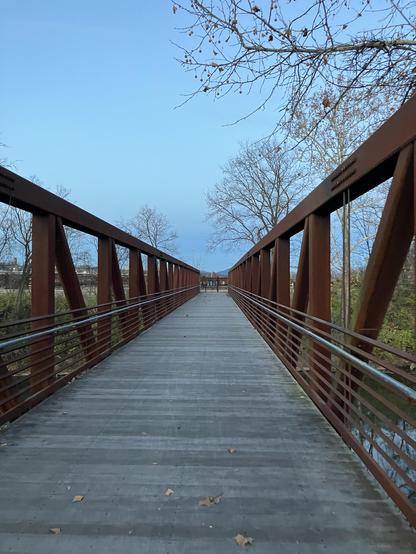2025-12-29 09:16:47
Today's alarm in the Radisson Blu Hotel will just be a DRILL!
Der heutige Alarm im Radisson Blu Hotel ist nur eine ÜBUNG!
#radissonbluhotel #39c3
2025-12-30 11:00:43
2026-01-28 12:44:06
2026-01-28 09:11:49
"When you focus on growth in GDP as your primary goal without any concern for whether what creates that growth is of real value rather than simply being capable of being counted, whilst being indifferent to the distribution of the gains, those already vulnerable are bound to suffer as a consequence... The policy failure this chart exposes is not an accident; it will be achieved by #Labour by d…
2026-01-26 20:55:40
Filing: The Trade Desk CFO Alexander Kayyal has left after only six months in the role; longtime executive Tahnil Davis will become the interim CFO (Trishla Ostwal/Adweek)
https://www.adweek.com/media/the-trade-desks-cfo-is-out-after-just-6-months-on-t…
2025-11-25 23:39:44
2025-12-29 13:32:53
Someone really doesn't like their Bändchen checked...
ACAB = all creatures are bändchened!
#39c3
2025-11-27 18:02:38
Just finished round 1 of #Thanksgiving cooking.
I have extremely mixed feelings these days about a holiday founded on genocide (seriously, official Thanksgiving #1 was "hooray we killed these natives, let's celebrate" which is deeply ironic/horrific given that the whitewashed origin story also did happen years earlier). But I'm a big fan of cooking and feasting, so that's what I focus on.
I'm vegetarian so no turkey.
I made "chiraji sushi" in my heavily bastardized personal style, as well as vegetarian stuffing. Both were pretty successful, although I truly regret forgetting to put nuts in the stuffing. I ended up using "smoky chipotle" flavor "better than bouillon" for the stuffing soup base, which pairs surprisingly well with the chopped persimmons. I tried doing microwave -> pan fry -> bake for the potatoes and carrots, and while they turned out good, they weren't as amazing as I'd hoped for.
The sushi (with stir-fried carrots, onions, mushrooms, and peas, plus fried tofu chunks and fresh cucumber and canned corn) turned out excellent.
Now I just need to decide what to have thirds of.
2025-11-27 07:44:09
2025-11-24 22:46:38
My hip pain, what I’m pretty sure was bursitis, disappeared after several days of rest. 🙌 I waited another couple of days and felt pretty good about trying it out.
So, we begin again. Again.
Stopped at the halfway point to take a few pictures and let my HR come down a bit. Felt good early and sluggish late. What I expect, for a while anyway.
#Running













